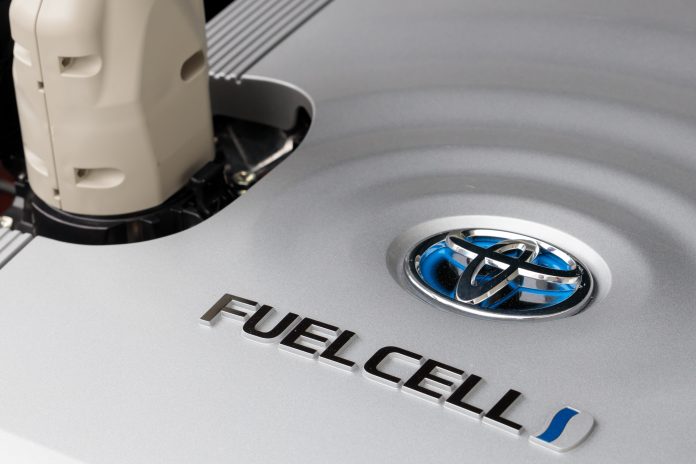Toyota and BMW are renewing their collaboration on hydrogen fuel cell technology with a new memorandum of understanding aimed at fast-tracking the development of next-generation zero-emission vehicles. The partnership aims to address key challenges that have hindered the widespread adoption of hydrogen-powered cars, with BMW planning to launch its first hydrogen model by 2028.
Although hydrogen is the most abundant element in the universe, automakers have struggled to mainstream hydrogen fuel cell vehicles (FCVs) due to a lack of infrastructure and high production costs. The limited number of fueling stations—primarily concentrated in California—along with sluggish sales have been significant barriers. In the first half of 2024, only 322 FCVs were sold in the U.S., a dramatic 82% decline from the previous year.
Toyota and BMW are optimistic that their renewed partnership can reverse this trend by focusing on two critical areas: component standardization and expanding the hydrogen fueling infrastructure. By co-developing a shared powertrain, the automakers aim to reduce costs and make hydrogen vehicles more accessible. Their collaboration on hydrogen-powered vehicles, which began in 2012, is now entering a new phase focused on accelerating innovation in the field.
BMW’s forthcoming hydrogen-powered model will be based on an existing vehicle from its lineup, offered as a zero-emission variant. Additionally, both companies are exploring hydrogen applications for commercial vehicles, though specifics have not yet been revealed. The partnership also emphasizes the need for stronger government and industry cooperation to establish a more robust hydrogen infrastructure and innovation framework.
Hydrogen fuel cells emit only water vapor and are gaining attention as a potential solution for heavy-duty vehicles and mobile power applications. One of the few automakers still producing hydrogen passenger cars, Toyota continues to sell its Mirai exclusively in California, offering a $15,000 fueling voucher to offset the costs. However, adoption remains slow, with only 26,000 Mirais sold since its debut. Meanwhile, BMW is producing limited units of its iX5 hydrogen-powered SUV to test market viability.
Despite the promise of hydrogen technology, challenges persist. California’s hydrogen infrastructure remains fragile, with many stations offline due to supply chain disruptions. Earlier this year, Shell closed several fueling stations amid hydrogen shortages, exacerbating the problem. Rising hydrogen production costs and limited station availability have made it difficult for the technology to gain momentum.
To tackle these issues, Toyota and BMW are organizing a roundtable discussion to outline their strategies for advancing hydrogen fuel cell technology. Their renewed partnership underscores a shared commitment to reducing emissions and driving sustainable automotive solutions, though the road to widespread adoption remains long and challenging.




